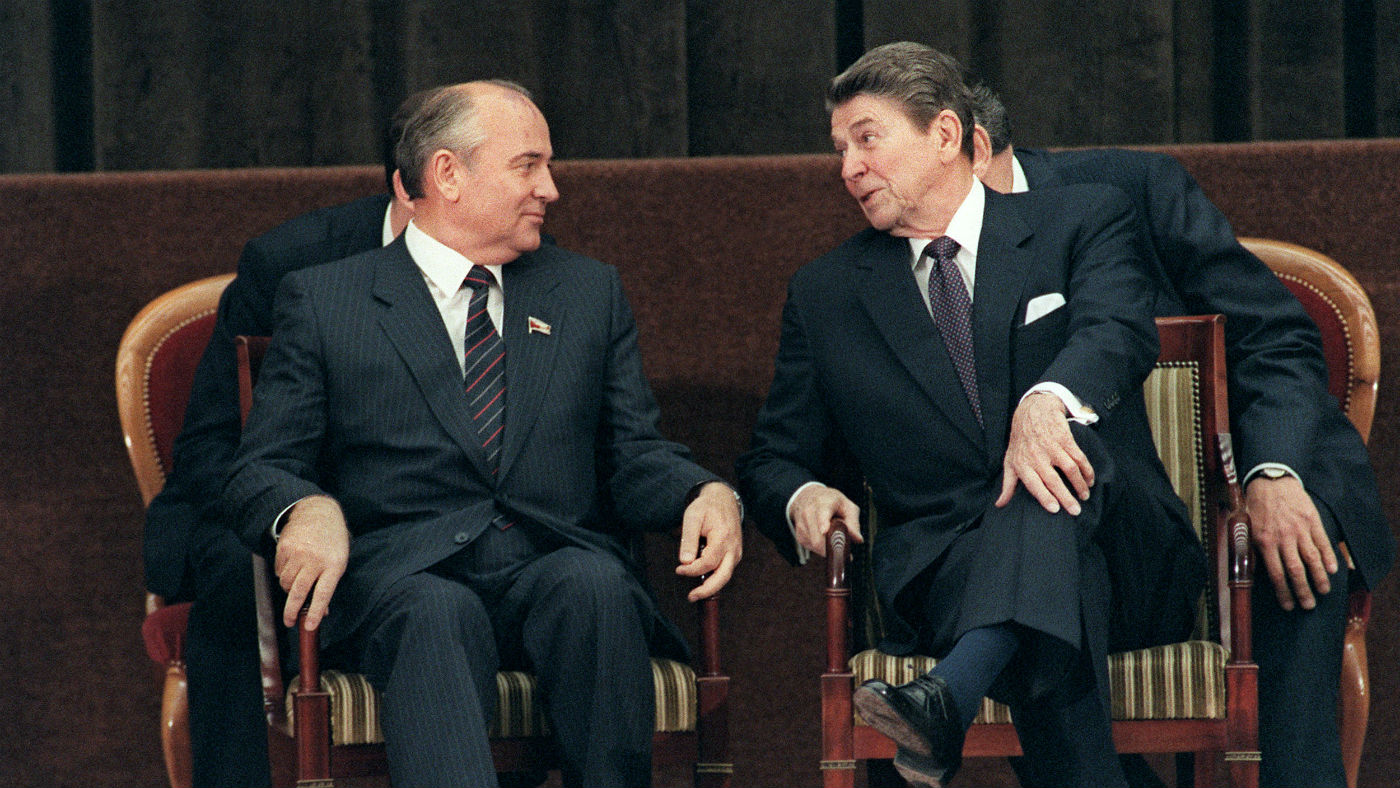What is the INF treaty and why has Donald Trump pulled out?
US leaving ‘watershed’ nuclear missile treaty

A free daily email with the biggest news stories of the day – and the best features from TheWeek.com
You are now subscribed
Your newsletter sign-up was successful
The US has formally withdrawn from a nuclear treaty with Russia, prompting fears of a new arms race.
President Donald Trump warned six months ago that the US would be pulling out of the Intermediate-Range Nuclear Forces Treaty (INF), which was agreed between the two nations in 1987, the BBC reports.
The US is blaming Moscow for the collapse of the Cold War-era pact, claiming it has breached the agreed terms.
The Week
Escape your echo chamber. Get the facts behind the news, plus analysis from multiple perspectives.

Sign up for The Week's Free Newsletters
From our morning news briefing to a weekly Good News Newsletter, get the best of The Week delivered directly to your inbox.
From our morning news briefing to a weekly Good News Newsletter, get the best of The Week delivered directly to your inbox.
“Russia is solely responsible for the treaty's demise,” Secretary of State Mike Pompeo said today.
“With the full support of our Nato allies, the United States has determined Russia to be in material breach of the treaty, and has subsequently suspended our obligations under the treaty.”
What is the INF Treaty?
The INF is a bilateral treaty between the US and the then Soviet Union. It was signed by President Ronald Reagan and General Secretary Mikhail Gorbachev on 8 December 1987 and ratified by both countries the following year.
A free daily email with the biggest news stories of the day – and the best features from TheWeek.com
The treaty required the destruction of the two states’ ground-launched ballistic and cruise missiles with ranges of between 500km (310 miles) and 5,500km (3,420 miles), along with the launchers and associated support structures and equipment, within three years of the agreement coming into force, says US public policy think-tank the Lexington Institute.
In effect, the pact protected Europe from the nuclear threat posed by Russia and the US, by banning missiles that would be able to strike European nations easily from within Russian territory and prohibiting the US from stationing missiles in Europe in order to target Russia.
The US Department of State has described the treaty as bringing about “a qualitative and quantitative change in the European security situation”.
The Stockholm International Peace Research Institute reports that within three years of the ratification of the treaty, more than 2,600 missiles had been destroyed.
The Washington Post has described the signing of the pact as a “watershed moment in Cold War arms control”.
The treaty was due to expire in February 2021.
Why has the US pulled out?
In February, both the US and Nato accused Russia of violating the pact by deploying a new type of cruise missile.
Washington said it had evidence that Russia had deployed a number of 9M729 missiles, a claim that was then put to and backed by the members of the international alliance. However, Moscow has denied it.
Trump set a deadline of 2 August for the US to withdraw if Russia didn’t come into compliance.
Russian President Vladimir Putin suspended his country's own obligations to the treaty just hours later.
However, as the BBC explains, the treaty’s woes predate Trump’s rise to power. In 2007, Putin declared the treaty no longer served Russia's interests.
That withdrawal came five years after then president George W. Bush pulled the US out of the Anti-Ballistic Missile Treaty, which banned weapons designed to counter ballistic nuclear missiles.
In 2014, Barack Obama also accused Moscow of breaching the INF treaty, after it reportedly tested a ground-launched cruise missile.
What does the withdrawal mean?
UN Secretary General Antonio Guterres says that “an invaluable brake on nuclear war” has been lost.
“This will likely heighten, not reduce, the threat posed by ballistic missiles,” adds Guterres, who is calling for all parties to “seek agreement on a new common path for international arms control”.
Sky News says Trump’s withdrawal means that “there will be no legally binding restrictions on the two biggest collections of nuclear weaponry in the world for the first time in nearly half a century”.
And the Bulletin of Atomic Scientists goes a step further, warning that “we are at the cusp of a new arms race in Europe and Asia”.